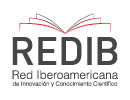On the Security discourse at the basis of surveillance practices
DOI:
https://doi.org/10.21142/DES-1503-2023-0045Keywords:
surveillance, risk, terrorism, COVID-19, society of controlAbstract
This essay wishes to expose and dismantle the ontological and political premises giving its ground to contemporary surveillance practices. It argues that surveillance policies and technologies are not abuses, but rather the continuation of Western political theory and practice which has always been apprehended as a security project establishing social classes to secure and others to be protected from. Surveillance practices pretend to protect our lives from insecurity on the streets, terrorism or a virus, while they actually conspire against our individual and collective autonomy, define norms of legal and illegal behavior, criminalize precarious social groups, make terrorist networks harder to identify, create an over-expanding market for risk assessment companies and national states, undermine claims for social justice and colonize the public sphere with war language. The essay denounces how the security project led together by public and private actors is thus one of securing a lucrative business for the powerful and an exploitative social order for the powerless. It suggests a few paths to counter the discourse at its basis.
Downloads
References
Amoore, L. and De Goede, M. (April 2005). Governance, risk and dataveillance in the war on terror. Crime Law and Social Change, 43, 149-173. https://link.springer.com/article/10.1007/s10611-005-1717-8
Baylos, A. (2021). El algoritmo no es neutral. No permite ejercer derechos fundamentales a los trabajadores de las plataformas. La Defensa. https://www.ladefensa.com.ar/La%20Defensa%2051/el-algoritmo-no-es-neutral..html
Beck, U. (2007), Beyond class and nation: reframing social inequalities in a globalizing world. The British Journal of Sociology, 58(4), 679-705. https://doi.org/10.1111/j.1468-4446.2007.00171.x
Beck, U. (2009). World at risk. Polity.
Calvo, P. (2019). Democracia algorítmica: consideraciones éticas sobre la dataficación de la esfera pública. Revista del CLAD Reforma y Democracia, 74. https://www.redalyc.org/journal/3575/357560862001/html/
Cramer, M., Meko, H. y Nierenberg, A. (2023). What we know about Jordan Neely’s killing. The New York Times. https://www.nytimes.com/2023/05/05/nyregion/jordan-neely-chokehold-death-subway.html
Deleuze, G. (1990). Post-scriptum sobre las sociedades de control. Polis. Revista Latinoamericana, 13(2006). https://journals.openedition.org/polis/5509
Dillon, J. M. (1996). Politics of security. Towards a political philosophy of continental thought. Routledge.
France 24. (2022). Selon Oxfam, la fortune des dix milliardaires les plus riches a doublé avec le Covid-19. https://www.france24.com/fr/%C3%A9co-tech/20220117-selon-oxfam-la-fortune-des-dix-milliardaires-les-plus-riches-a-doubl%C3%A9-avec-le-covid-19
Gendler, M. A. (2016). Datos, algoritmos, neutralidad de la red y sociedades de control. IV Simposio Internacional LAVITS. Buenos Aires. https://lavits.org/wp-content/uploads/2017/08/P4_Gendler.pdf
Hernández Arteaga, L. (2018). Niklas Luhmann, ¿una teoría sistémica de la democracia? Estudios Políticos (México), (43), 11-34. http://www.scielo.org.mx/scielo.php?script=sci_arttext&pid=S0185-16162018000100011&lng=es&tlng=es.
Huanca-Arohuanca, J. y Barria-Asenjo, N. (2022). Replanteando el concepto de justicia como equidad y velo de ignorancia en John Rawls desde el pluralismo ético. Desde el Sur, 14(3), e0036. http://www.scielo.org.pe/pdf/des/v14n3/2415-0959-des-14-03-e0036.pdf
Journal Officiel de la République Française, JORF. (31 octobre 2017). LOI n.° 2017-1510 du 30 octobre 2017 renforçant la sécurité intérieure et la lutte contre le terrorisme (1). JORF n.° 0255. https://www.legifrance.gouv.fr/jorf/id/JORFTEXT000035932811/
LaFrance, A. (2014). Even the editor of Facebook’s mood study thought it was creepy. The Atlantic. https://www.theatlantic.com/technology/archive/2014/06/even-the-editor-of-facebooks-mood-study-thought-it-was-creepy/373649/
Masdeu, J. (2020). Rastreados por el móvil para frenar al coronavirus. La Vanguardia. https://www.lavanguardia.com/vida/20200327/48109834703/coronavirus-tecnologia-rastreo-movil-telecomunicaciones-datos.html
Mora, R. (2021). Pandemia global, crisis económica y política. Desde el Sur, 13(1), e0007. http://www.scielo.org.pe/pdf/des/v13n1/2415-0959-des-13-01-e0011.pdf
Oxfam. (2022). Les inégalités tuent. https://www.oxfamfrance.org/wp-content/uploads/2022/01/Rapport_Oxfam_Inegalites_mondiales_Davos_170122.pdf
Schiphol Privium. Website. https://www.schiphol.nl/en/privium/
Teknautas (2014). Facebook manipuló 700.000 cuentas de sus usuarios para un experimento. El Confidencial. https://www.elconfidencial.com/tecnologia/2014-06-30/facebook-manipulo-700-000-cuentas-de-sus-usuarios-para-un-experimento_154343/
Downloads
Published
Issue
Section
License

Esta obra está bajo una licencia http://creativecommons.org/licenses/by-nc-sa/4.0/

















